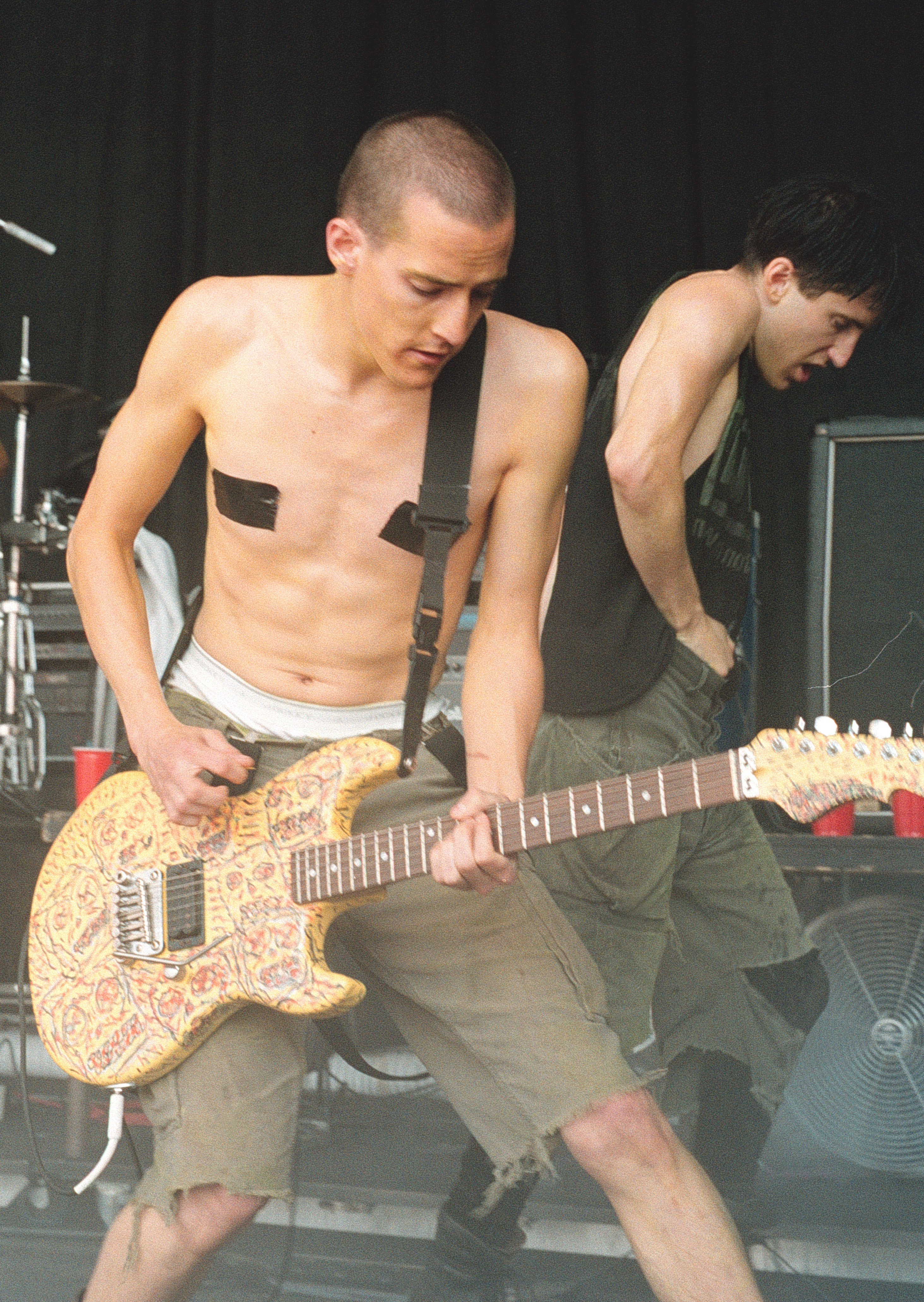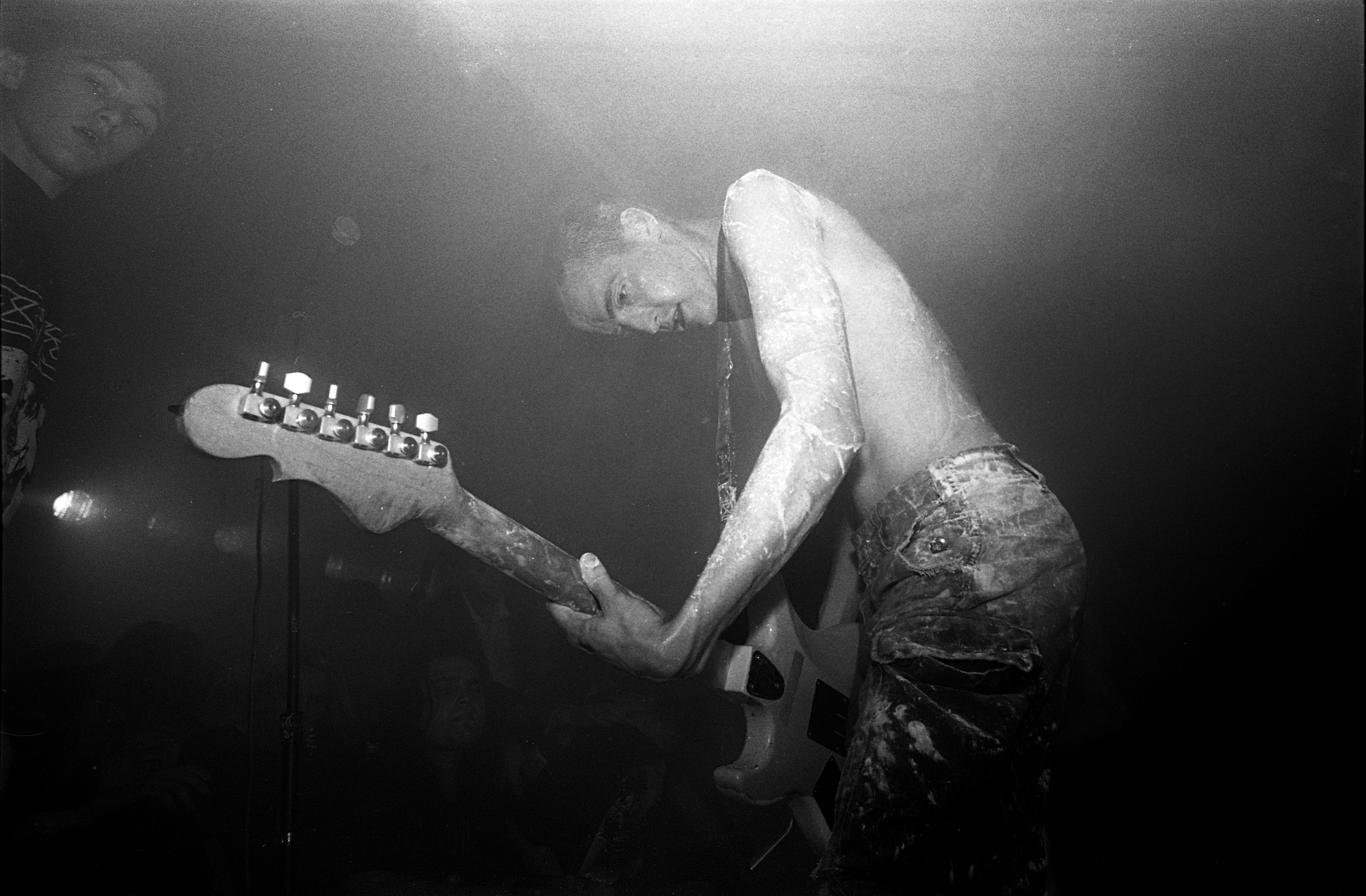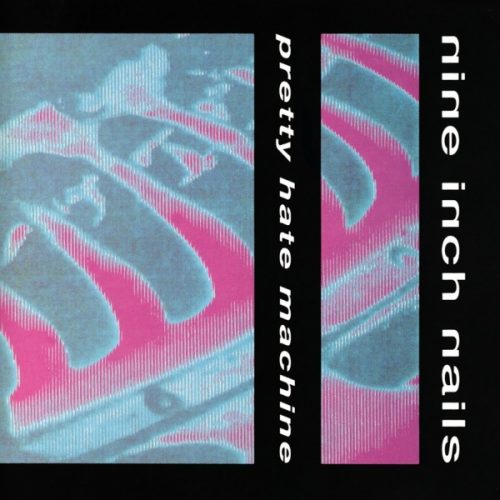Years before Richard Patrick launched Filter in 1993 with Brian Liesegang, and decades before forming Army of Anyone with brothers Robert and Dean DeLeo of Stone Temple Pilots fame, he was a wiry kid in Cleveland who was just beginning to find himself creatively. And Patrick wasn’t alone: Another Cleveland kid by the name of Trent Reznor was looking to make his mark, ultimately doing so with Nine Inch Nails’ debut album, Pretty Hate Machine.
That album—released three decades ago on October 20, 1989—boasts a brief but memorable contribution from Patrick. And for the next four years, he hit the road with Reznor as Nine Inch Nails’ touring guitarist, before going off on his own to form Filter during the making of The Downward Spiral.
RELATED: Every Nine Inch Nails Album, Ranked
With Filter, Patrick—whose thespian older brother Robert you might recognize—released seven albums and earned two major rock radio hits: “Hey Man, Nice Shot” from the band’s 1995 debut, Short Bus, and “Take a Picture” off the 1999 follow-up, Title of Record. According to Patrick, he and Reznor have remained close over the years, and today, they still get together with their young children for the occasional play date.

Also Read
NIN’s The Downward Spiral at 30
In light of Pretty Hate Machine’s 30th anniversary, we reached out to Patrick to get his impressions on Nine Inch Nails’ stunning debut. He shared more than that, going back to late ‘80s Cleveland with his remembrances from the era, as well as from his days playing with the band. The following are his own words.
Trent had asked me about his band and his demo back in those days, and he was in the Exotic Birds. I didn’t know what he was planning, but he was trying to find a deal, and was turned down by everyone except TVT.
I love rhythmic, tribal beats, so I was obsessed with The Land of Rape and Honey by Ministry, and I looked like a Nazi: I had shaved my head, wore suspenders with white shirts and combat boots. Trent asked, “What happened to you?” and I told him, “I only listen to industrial now.” I had joined this band called Collapse.
I remember hearing he got a record deal. Trent had a collection of songs he was fishing around. He was curious; he tried things. He was like, “I think I can rap a little,” and so he does on “Down in It.” He was like, “I like Depeche Mode,” and he writes “Terrible Lie.” There’s a whole bunch of stuff going on [on Pretty Hate Machine].
When I started getting in the band, I was begging to do something on the record. I got to make this guitar segue between “Sanctified” and “Something I Can Never Have.” I did this feedback part.
By this time, he had already started calling me “Piggy.” He had smashed a couple of my guitars, so he bought me this guitar that was hot pink. I was like, “Dude, I only wear black and I only play black guitars.” But he wanted us to sort of match the colors on the record; he said, “I want the band to have a little sparkle of color.” This was towards the tail end of hair metal, and he gives me a hot salmon pink guitar.
I took that guitar home, and Cheri, my twin sister, took one look at it and said, “You look like a big p–sy playing that thing.” So, I took a Sharpie—because Trent said I could paint it—and I Sharpied the whole guitar black. The next day at practice, they open up the case, and someone goes, “Look what Piggy did to the guitar,” and Trent looks and goes, “Touché, Piggy.”

Trent introduced the world to a new sound because of his rock songs. Here’s a verse, a pre-chorus, a chorus, a bridge—it all worked as a pop song; there was a format to it. Bands like Skinny Puppy are just noise on top of noise on top of noise. Trent is an icon from that period of music, and he always will be. There are so many talented artists from that amazing, explosive era. Trent is way up there. He was fully committed towards chaos and was insanely upset at the world. He just was not happy—just not a happy kid, and primarily, it was because of that insanely awful record deal. Also, Cleveland is really dreary.
Pretty Hate Machine is a brooding, angry album with lots of textures and sounds. It’s all about Trent’s voice. He has the ability, when he sings, that, from the moment you hear his voice, you are sucked in, and that’s the reason why that record was so monumental. It’s because of the authenticity Trent brings to those songs: He was living these emotions and he authentically sang from the heart.
RELATED: Pretty Hate Machine Turns 30: 7 Musicians Celebrate the Influential Debut Record
Trent draws you in, and that’s why it is still such a relevant album. He was such a young person, and he really did sing like a motherf–ker. It was about how extreme you could be, and he just goes for it—he f–king goes for it. There are singers that sound pretty and are great, but then there are these dudes who just f–king go for it—it’s just f–king yelling.
Trent was bringing it with his voice and he’s a really talented guy. His talent and his voice just break through the speakers and you just hear this authentic, amazing performance. He told it like it was. He had that something extra, that certain authenticity—the sound of his voice, the deeper sort of raspy singing he does at the top of his range—you hear all the different characteristics in his voice.
The songs on Pretty Hate Machine were brilliant. It was him, just getting it right and firing on all cylinders. Trent sang with a knowing.
What was your reaction when you first heard Pretty Hate Machine? Tell us on our Facebook page.





